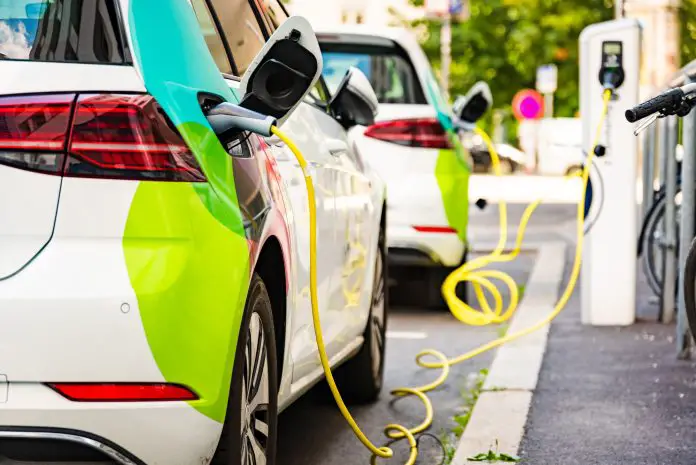The electric vehicle (EV) market in the United States is experiencing a notable surge, with sales of electric and hybrid vehicles reaching a record share in the third quarter of 2024. According to estimates from Wards Intelligence, these vehicles now account for 21.1% of total new light-duty vehicle sales, up from 19.1% in the previous quarter. This development presents both opportunities and challenges for small business owners considering investing in or catering to this evolving marketplace.
Key Takeaways:
- Electric and hybrid vehicles reached 21.1% of new light-duty vehicle sales in 3Q24.
- Battery electric vehicles (BEVs) claimed 8.8% of the market, with significant growth in the luxury segment.
- Tesla remains the leader in the BEV space, but competition is rising from manufacturers like Chevrolet and Ford.
- Tax credits under the Inflation Reduction Act hold implications for small businesses eyeing EV investments.
The rising tide of electric and hybrid vehicle sales presents several benefits for small business owners. First and foremost, this expansion could signal a shift in consumer preferences towards sustainability. Companies can leverage this trend by incorporating eco-friendly practices and promoting their use of electric vehicles for deliveries or services. Additionally, with BEVs growing particularly popular in the luxury vehicle segment, businesses that serve affluent clients may find value in offering EVs in their fleets for added prestige.
Luxury BEVs accounted for 35.8% of all luxury vehicle sales in the third quarter, highlighting the growing acceptance of electric vehicles in high-end markets. However, it’s worth noting that while luxury BEVs now dominate this space, their share of total BEV sales has been gradually declining. This indicates a diversification of consumer interest towards more accessible electric options, which could open doors for small businesses in different sectors.
Business owners also need to factor in the financial implications of transitioning to electric vehicles. The average price for a new BEV was about $56,351 at the end of 3Q24—16% higher than the industry average. Although the initial investment may be significant, potential savings on fuel and maintenance, as well as government incentives like the clean vehicle tax credits mentioned in the Inflation Reduction Act, can help offset these costs.
Tax credits play a crucial role in determining the affordability of EV acquisitions for small businesses. While these incentives are designed to encourage the adoption of electric vehicles, they come with specific requirements related to domestic manufacturing and content. Notably, while the clean vehicle tax credit applies to vehicle purchases, many EVs may better qualify under the commercial clean vehicle credit when leased, making it essential for small business owners to explore their options.
Moreover, the continued increase in manufacturing domestically—78.9% of BEVs sold in the U.S. in 3Q24 were made in North America—could provide a sense of stability in sourcing vehicles. However, the conditions tied to tax credits for qualifying vehicles may be complex, and small business owners are advised to consult tax professionals to navigate these requirements effectively.
Speaking on the shift in the EV market, Monica Abboud, the principal contributor to the report, noted that Tesla maintains a dominant market position with 48.8% of BEV sales, although it has slipped below the 50% mark for the second consecutive quarter. Notably, the recent introduction of the Tesla Cybertruck has spurred an uptick in their sales performance, showcasing the potential for newly launched models to impact the market dramatically.
As we enter a new era in the automotive industry, staying abreast of these changes will be imperative for small business owners. Whether you’re considering purchasing electric vehicles for your fleet or seeking opportunities to enter the EV market as a retail option, understanding the landscape will be vital to seizing these prospects.
For those interested in more detailed insights on the electric vehicle market and its implications, additional information can be found on the original report from the U.S. Energy Information Administration here.



